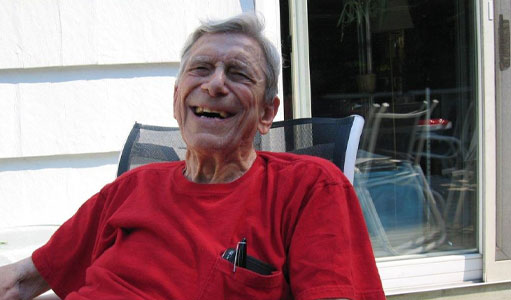In Memoriam: Theodore R. Bashkow
 Theodore R. Bashkow, professor emeritus of electrical engineering and computer science, died December 23, 2009, at his home in Katonah, New York. He was born in St. Louis, Missouri, and attended Washington University, where he received his BS degree in mechanical engineering. He went on to receive his master’s and doctorate degrees at Stanford University.
Theodore R. Bashkow, professor emeritus of electrical engineering and computer science, died December 23, 2009, at his home in Katonah, New York. He was born in St. Louis, Missouri, and attended Washington University, where he received his BS degree in mechanical engineering. He went on to receive his master’s and doctorate degrees at Stanford University.
He served as a first lieutenant in the U.S. Air Force during World War II from 1943 to 1945. While in the Air Force, he served as a maintenance officer and helped to stage the Enola Gay. In the 1950s, while at Bell Labs, Professor Bashkow became well known for his development of a new method for analyzing linear electrical networks, Professor Bashkow’s A matrix. He also became involved with digital computers.
Bashkow joined the faculty of the Columbia Electrical Engineering Department in 1958 and helped transform the Electrical Engineering Department into the Department of Electrical Engineering and Computer Science. When, in 1979, this department was divided into the Electrical Engineering and Computer Science departments, Bashkow became one of the founding faculty members of Computer Science. He taught courses in digital logic, computer organization, and computer programming.
He did research on parallel processing. In collaboration with Herbert Sullivan, he pioneered a new approach to that subject through the development of CHoPP, Columbia Homogeneous Parallel Processor, a large-scale, homogeneous, fully distributed parallel machine. A number of Columbia graduate students and a junior faculty member, David Klappholz, were also involved at various stages.
In 1980, the Computer Science Department instituted an annual award in his honor, the Theodore R. Bashkow Award. Among his many affiliations, Bashkow was an active member of IEEE, ACM, and Sigma Xi organizations.

